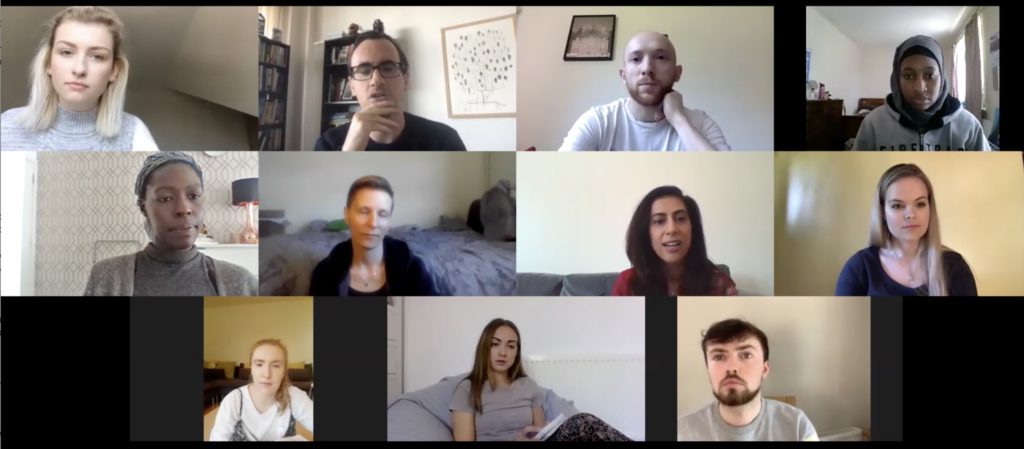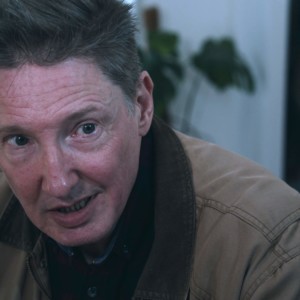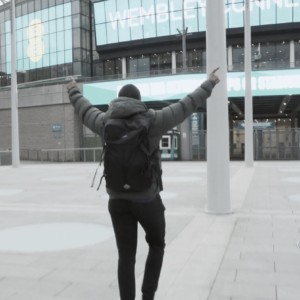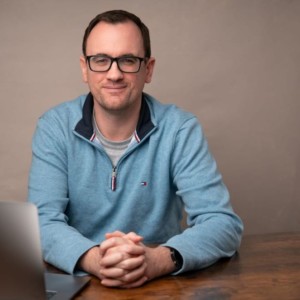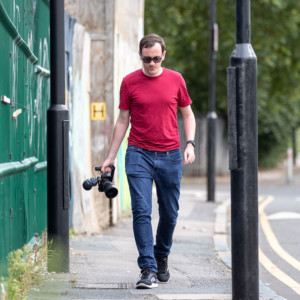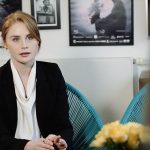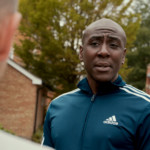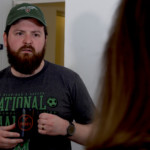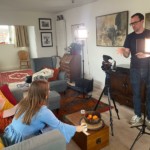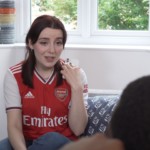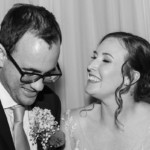When you’re given limitations, it’s easy to think your creativity will dry up. But for me, the lockdown has been an opportunity.
If anything, the levels have evened up. TV shows are creating content using zoom calls. Suddenly, the stuff we can make in our bedrooms has the same production value as Jimmy Kimmell or SNL.
For actors looking to create their own content during the lockdown, I did this 45 minute workshop:
Beyond the Self-Tape – Creating Showreel Scenes During a Lockdown.
Below is a full transcription of the workshop.
Interviewer: All right, guys. The idea of this really is to tell you a bit about myself. My background is filmmaker, a lot of short films, and I do a lot of showreel material for actors, writing scenes from scratch. And I think obviously, with COVID, there’s…you know a lot of people are doing self-tape material which is great. I think it’s great that people are doing that kind of material. But I’m wondering if during this sort of period of time, there’s an opportunity to…when filming things just for yourselves from home trying to have material that’s useful for a reel, I feel like there are certain methods and things you can do to make the material a little bit more engaging than a self-tape and that’s what we’re here to talk about. Did you guys get a chance to watch the clips I sent?
Woman: Yes.
Man: Yes.
Interviewer: Cool. So the Skype-call one, sort of comedy-sketch one… I’m not an actor, by the way, although I was in that sketch. I was shooting some things for that actress, her name is Leonie Zeumer, and we just had a sort of 10-minute downtime and I had an idea and we just filmed that in one take, improvised. And by no means am I suggesting it’s like the best thing ever, you know, but it’s an example of something that you can do…
Man: I’m listening… Yeah.
Woman: No, it’s not just the not listening thing, Man. It’s everything. It’s everything within your house. I can’t cope with this anymore. I just…it’s not working for me anymore.
Man: Apparently, it’s not work…can you hear us? Who said it’s not working?
Man: No, Jon [SP], I don’t mean the bloody Skype. I mean this. I mean…
Man: What’s not working? Why are you doing something that will make…
Woman: See I just…you know, he doesn’t even understand what I’m talking about. He never really listens. Do you know me at all, Jon?
Man: Well, I think so. I’ve been with you for, like, 10 years or whatever.
Woman: Yeah, maybe 10 years is enough. I mean, maybe there’s just… At some point, you have to draw the line. I don’t know.
Man: See it’s just joking. We’re just having a lot of… It’s just fun.
Woman: Do you see me laughing?
Man: Why would you do this in Skype?
Woman: No. It’s as good a time as ever.
Interviewer: I’m not necessarily even saying it’s showreel material, but it’s a comedy sketch. I think it’s got a few laughs in it. Admittedly, it was nine years ago now. But the reason I showed you those two clips and this is the main thing I feel like I have to sort of say today is…reading from my notes, I said, “The key bit of advice is to make scenes that suit your budget.” By that I mean rather than just film… I feel like what a lot of people are doing, they’re taking a scene from let’s say the play/film closer and they’re finding a monologue piece from it and they’re standing there with a white background just performing like they’re on a stage and it doesn’t feel real.
You know, I’ve seen whenever I go on Twitter there’s like all these people like, “Here’s my self-tape. Come watch my scene. Come watch my…” you know, doing a bit of material they like. But by the nature of it, self-tapes… Maybe you guys don’t agree, but I feel like by their nature, self-tapes are not the most engaging thing to watch. And I see most of you guys are in mute. You can give me some nodding. Do you agree that they’re not that fun to watch or…? Oh, there’s some mixed opinions there. Okay.
I feel like people are slightly more saying they’re not that engaging to watch. And the other clip that I sent you was…So I did this thing a few months ago and I can send you guys a link to the blog post. I had this idea of doing a project where I could direct people around the world or wherever they were. I was in America at the time, actually, for a few weeks, and I worked with a lot of actors back in England. And I wrote these monologue pieces like the script I sent you all and the idea was that they could film it, send me takes. I would then direct them and say, “Maybe try this. Maybe try that,” and then they could have a bit of showreel material out of nothing that didn’t cost anything to do.
And whilst those actors did that with me, I don’t think you need someone like me. So, for example, the piece… Weirdly, we filmed that before all the lockdown and everything. And obviously, the scene was about someone in lockdown, panicking that everyone is dead, there’s no way to get food. And it’s weird how it mirrors real life more than I had anticipated when we did it.
Woman: The streets are still empty. The radio has gone dead. I have no idea why I’m recording this video.
Interviewer: But what is it I wanted to say? So I feel like there are certain stylistic things that you can do to elevate what you do from the level of self-tape to at least temporary showreel material. By no means am I saying if you do something on your phone that it’s necessarily gonna be something that you use for the next three years and show to every casting director. But most of you guys had sort of said or implied that you don’t have much material so I think that…
The one thing I think that is important is that you can… So the Skype thing was meant to look bad. It was meant to… In fact, I shot it on a good camera and then made it look like a Skype call. Meanwhile, the thing that the actress did with the isolation-type thing, she filmed on her phone. It was meant to be filmed on her phone. So I think an idea is if you’re sitting at home thinking all I’ve got is my phone, like, use it as an asset. You can write yourself or improvise a bit of material which is, “What if the world is about to end and I wanna tell my dad I forgive him for that thing he did?” or “What if I never told someone I was in love with them and now is my one chance?” or, you know. There are so many different ideas you could do.
For example, just as a raise of hand, has anyone been watching “After Life,” the Ricky Gervais show? Okay, less people than I expected. Three, three and a half. Someone is not sure. There’s Kerry Godliman’s character. She’s the wife who passed away. We see her in flashbacks. Most of what she did…most of her scenes are her obviously about to pass away. She’s got the headband on because she’s been sick and she’s got a hospital in the background. Obviously you guys, I would assume don’t have access to a hospital, but that is a really good example of really strong acting, really good acting done in a legitimate location.
So if I was gonna do a scene right here right now, if I’m doing a monologue here talking about being in the hospital, it’s not realistic, but if I’ve got a bookcase or I’ve got some plant…my girlfriend’s plants over here, I can do a scene about someone who’s obsessed with plants and trying to sell them during a lockdown but no one will buy them because we’re in lockdown. I don’t know. Like, I think that… I feel like I might be rambling a bit, so I assume you guys would tell me to be more in message if it’s not making sense. But the idea is to do scenes that match what you have available.
So if all you’ve got is your phone, do scenes that are set on a phone. Or, you know, like this Zoom thing. I’ve not been able to come up with an idea yet, but if you record a Zoom conversation, it practically does the editing for you. Whoever is talking is in-shot and if you wrote yourself a funny comedy sketch about two people having a Skype conversation or a Zoom conversation, I think it can be valuable material, at least for the next few months, because I get the sense that casting directors are…they’re realizing the situation that everyone is in. So I feel like it’s evening the playing field a little bit in that there’s an opportunity to show material that has not been shot for lots of money or with great cameras.
The final main point I wanna make and then maybe we can have a bit of a chat is I still think you should… I mentioned the idea of improvising stuff which is great if you’ve got that skill, but I think it’s best to write yourself material and learn your lines and I would make sure you sort of adhere to the rules of drama. As in have a conflict, maybe have a sort of exchange of power in a scene. I’ll explain what I mean by that and also a matter of urgency. So a conflict would be the world is about to end or I’m never gonna get to speak to so-and-so again, or I need to Skype the girl I like before she chooses the other guy, whatever it might be. So you have a conflict.
And wherever and exchange of power I just mean… I guess what I mean about that is if you start the scene weak, maybe you end it strong. Maybe there’s a moment when you say I’m never gonna let this bad thing happen again, or maybe you start as a confident character and then you get weaker. A matter of urgency purely because I think that… Like most film scenes, it’s more interesting when something’s gotta happen right now or if you don’t do this thing, something bad will happen.
Yeah, those are sort of the notes of ideas that I have. Does anyone have any thoughts or questions or… We can open up a little bit. I realize there’s quite a few of us. Maybe if like a finger raise, which I see, and I’ll point out some people. So the guy I’m seeing in the white shirt up in the corner there. Yeah.
Ben: Hi.
Interviewer: Hi, Ben, how are you doing?
Ben: Can you hear me?
Interviewer: I can hear you.
Ben: Yeah, that is really helpful. Thank you.
Interviewer: Cool.
Ben: I’m interested in…like, I’m in the very early stages of making some content for myself. I’m also interested if you have any… Knowing that most of us will be filming…I’m gonna be filming on my phone, and the setup that I have is okay and I’m learning a bit as I go about editing, but like basics that always good to remember, to keep in mind in terms of like the practicalities of lighting, sound, things to avoid…
Interviewer: Yeah, do you know what? Like, so that’s interesting. Where you mention lighting, the great thing about setting a film or setting a scene, if it’s meant to be filmed on your phone, as in “I’m a character in this situation using my phone,” lighting is not the key thing. Do you know what I mean? I would even suggest that lighting doesn’t have to be good.
Ben: Cool.
Interviewer: You know, because it’s not the key thing. I know, obviously, with a showreel, with scenes, you want it to look really good. But that scene I did with the actor, the isolation thing, which he was in a bathroom, for those who have seen it, when we did a bunch of takes, I kept saying to her, “Stop making it look so good.” Like, “Stop having it so well-framed.” I was like, “Just pick up the camera and put it in the corner of your bathroom and do it and it will be more real because it’s meant to be shot on a phone. Like, the Skype thing I did was meant to be Skype.”
You mentioned editing as well. So the two things I showed you, the Skype thing, I made it look worse quality which if you use Zoom, you wouldn’t have to. It would be done for you, but it’s… There’s no editing in that Skype comedy sketch I sent you, and the thing with Alexandra, the isolation thing, I literally… I think there were two takes that I literally put them together which you don’t need to be an editor to know how to do. You’ll find some program and just put one after the other.
And the only thing I then did was I then…and maybe this, me being an experienced editor, can do this a bit more easier than you might, but I literally put a fake kind of record button in the corner and maybe something else with the date. I can’t remember what I did, something like that. But keep it simple. If you write yourself something with 10 scenes and a soundtrack, it’s gonna get more complicated and that’s great. You know, we’ve got all the time in the world if you’re not at work at the moment, so, you know, it’s a lockdown. But keep it simple and put your character in a real situation, I think.
Ben: Cool. Thank you.
Interviewer: Cheers, Benjamin. Anyone else?
Woman: So I’ve kind of spent a bit of money on random light and a mic, but yeah…I mean, do you… I was thinking like maybe you had like a sheet with like some kind of good lights to get or some particular mics to get or anything like that. So if you’ve got any of that advice, that would be great, anyway, but that is probably a takeaway, specifically the lights, actually, because I can’t quite get my lighting light and I know you Neewer is quite good but I have…
Interviewer: Yeah, that Neewer is great because they’re cheap. Like, they’ll do an imitation of some… Someone else will make a light that costs thousand pounds and Neewer will do a light that costs 80 quid.
Woman: They’re selling me different ones on Amazon, so it’s a bit like, “Which one?” and I sent one to my head of media and he was like, “No, not that one because blah-blah-blah.” And I’m like, “I don’t know what you’re talking about.” So almost it’s like…if there was like a little, I don’t know…ideas of…
Interviewer: Yeah, absolutely. I mean, most of those cheaper lights are actually very… I feel like if you’re more advanced and you’re a cinematographer, then maybe you want all these different special lights, but for most of the purposes, certainly for self-tapes, and even for a lot of short films, essentially, you use light on a simple level to balance. So for example, now I’m near a window on this side and I’m bright. This side is dark. One of those Neewer lights that’s just a bit of even balanced light on this side and then I’m pretty well lit. So it doesn’t need to be complicated. Yeah. A lot of the lights you found are probably great. I’m happy to send you the ones that I use and some of them are really cheap because they do the trick. What was your creative question?
Woman: My creative question is it’s a great idea to kind of almost like, you know… I was thinking of like some self-written stuff but it’s kind of new to me, so….and then I was very much… You know, so we’ve been told to go on to BBC, I don’t know, whatever, the writing thing and take the scripts and have a look. So I had to do a location scene. So I’ve done one of those. But I was wondering about other resources and I was actually gonna say do you have a treasure trove of your own that, you know…that you’ve got some old material and then, “Oh, do you know what? Go and have a play that,” kind of thing
Interviewer: Do you know what? I do have some scenes that I’m happy for you to use that I… There’s three scripts, one of the ones you saw, that I did for this sort of monologue at home thing. I’ve got a few bits and pieces that I’ll email to you guys afterwards.
Woman: Okay. Thank you. That would be wonderful.
Interviewer: …that you guys will be welcome to use but they might just inspire you to do your own version. I think like the thing with taking them from BBC and all of that is that…and maybe this is just my own personal taste, but I thought when you take… Like I said earlier on, when you take material from somewhere, it’s rarely… You know, when you’re watching a film, what I would like is you guys to make scenes that look like they’re from a film or look… And the way to do that is that… You know, you can be watching a movie and then they cut to a moment when the lead character is talking to his phone. I want you guys to, like, make those moments. Do you know what I mean? And I think they can be good scenes.
So when you find material, you know, from an episode of “Killing Eve” or something, it ends up feeling like an audition piece or feels like, “Here’s me doing that famous clip then putting it on my website, putting it on my Twitter.” So I feel like it can work against you or is not as interesting as if you just wrote yourself like you’re just saying you write yourself. Like even just a simple… You could write a comedy sketch about a Zoom chat workshop that goes wrong and everyone is a bully and there’s someone who’s sarcastic, you know what I mean? Like, you could just do something. We could do this. Maybe we should do this tomorrow is make a film. But I’ll give you some lines. You know, you could literally make a film by doing what we’re doing now. So yeah, I think like be creative, write stuff, is a good idea, but I certainly got some little scripts that I will send over. Yeah.
Woman: Thank you very much.
Interviewer: All right. The lady with the fire-something on her hoodie there. It says fire. Yeah. Hey.
Woman 2: Hello. So two questions: one about filming like a self-tape for auditions and another one for filming a scene. With a self-tape, I feel like the characters that I choose are quite animated and dynamic but yet we always have to stick to the self-tape roles of, “Okay, you have to be still. You can’t really use too much gesture. You have to fit in the face.” So you might be a little bit more daring and, like, and port some of that dynamism enough?
And for the scenes, if you do write yourself, would you say that less is more in terms of dialogue? And if you’re not fortunate enough to have, like, you know, like housemates that are actors, you basically have to do like solo scenes by yourself. Would you say that they all have to be done to camera or can they be like…the camera is just in the space and it’s just capturing, like, what you’re doing here and there?
Interviewer: I’m gonna answer some of your last bits first. Of course, you can. I mean, look. These phones that most of us have now, the picture quality of them is better than when I started making films and I had bought my first supposedly great camera. Like, an iPhone has better picture quality. So, therefore, you can make a more traditional scene, as in, put the camera up and film yourself in a scene rather than using it as your phone.
That being said, you run into the tricky territory of the fact that you don’t have a camera person, the fact that it would just probably look lower-budget. It would kind of look… It can be done, but it might feel not as real or feel like someone trying to do a scene. Whereas I think if you can find a use for the phone as in this character would film on a phone, it might feel slightly more realistic. And I had another point on that and I’ve lost it. What was I gonna say?
Another idea is, you know, if you guys have a partner or a parent, whoever you’re with at the moment, they might not be in the industry, you might be shy about acting with them, but you could do a documentary-style piece where all they’ve got to do is film it. So you know, thinking of things like the office, it could be…you know, you could… So if you had an idea, let’s say you wanted to do a film about somebody who’s breaking the lockdown rules and has gone to a house that isn’t theirs. I don’t know. I’m just thinking of bad ideas. You could make a documentary of it and have your mom holding the camera and then you can act in the scene. Or if any of you are lucky to live with actors, you know, find the one who is not an actor and they can just hold the camera and do it documentary-style.
So I’ve done short films in the past that are documentary-style because I couldn’t afford the budget to, you know…if I’m filming like a real film, everything needs to be perfect. But if you want the lighting to be bad, the sound to be dodgy, as soon as you say, “Documentary,” you have the license to have everything not be perfect.
And then back to what you was asking about self-tapes. I don’t know your acting personally, but I think there’s a few stages I think that happen with self-tapes is when actors are sometimes less experienced, they have a tendency to overact. So I think acting teachers and people like me try and be like, “Be more natural. Be more yourself, la-di-da.” And that helps actors get better. But then at some point, an actor is so natural that it almost becomes bland and not distinct and then you kind of wanna say, like, “Just put a bit more of yourself in there. Like, don’t be afraid to get angry.”
For that, I would say with self-tapes, find someone you trust, film ten versions and show it to them and do one where you try… I think it’s important to have someone that you trust who you can act really badly in front of and they won’t make you feel like crap if it’s bad. Do you know what I mean? Like, it’s good to have those people and then experiment with putting in those bits that are more… I don’t know whether the word is emotional or more…bigger. But I totally get what you’re asking because it’s such a tricky thing, isn’t it? Between wanting to be subtle and real and not wanting to do under-do everything. Does that answer your questions?
Woman 2: Yes, it does. And one other thing about the less is more, in terms of the amount of dialogue that you use, if you are going to do it either with two people or just yourself, is less more or like how…yeah.
Interviewer: Yeah. That’s a good question. It really depends on your style of what you’re doing and definitely don’t do dialogue for the sake of it. One of the monologue pieces that I’m going to send you the script for later, the first line of the script, the character says, “I just got my test results back.” And then there’s a long pause.
Woman: I got my results. Yeah.
Interviewer: And it’s a good moment because it says so much. It says, “I’ve just got the results back,” and as an audience, you’re thinking, “Are they sick? Are they gonna be okay? What’s going on?” And it enables the actor to sit in the moment and be interesting without having to have a lot of dialogue. It’s like anything. It’s like any film. If you can do something with less words, if you can show it visually, that’s great, but it depends on, I think what the material is. Okay? Cool. Anyone else? Okay. We’ve got the lady on the sofa thing with a radio. Yeah.
Emma: Hello.
Interviewer: Hi, Emma. That’s Emma. Hi, Emma.
Emma: Hi. Do you suggest just creating [inaudible 00:24:19] or creating several scenes together as more of a showreel with variation?
Interviewer: Good question. Who knows? I mean, start with one as a scene. See if it’s any good. See if you get good feedback. The hard thing is if you do it as a showreel in lockdown then before you know it, you’re like, “Here’s my comedy scene on the sofa. Here’s my very serious scene in my bedroom. Here’s me in the kitchen having the breakup.” Like, it could be a bit… It’s like, “Yeah, she’s just on her own in lockdown and she looks [inaudible 00:24:52].” You know? [inaudible 00:24:54].
Emma: [inaudible 00:24:54]
Interviewer: Another option for getting showreels for a minute, and I’ve seen some people doing this, you might come up with a funny comedy character and it could be a series, you know, if you were to do comedy, for example. But yeah, I think who knows? I think if you do too many of these things, it might like a bit of a…it could go tacky as well. It’s a thin line. But I think at least initially, to rein in the ambition a little bit, do one good scene. That will especially…and I don’t know, like, how much material do you feel like you have for your reel at the moment?
Emma: Not a lot.
Interviewer: Not a lot? Okay. So I think if you guys do a good version of this, it will be better than some bad student film that you did three years ago. I think that you guys are capable of that. So yeah, focus on one and, like, look, if it’s amazing, then do 10 of them, you know. Cool. Thanks, Emma. Cool. Anyone else? Any thoughts? Anything? Okay, we’ve got…who’s that over there? Hannah.
Hannah: Yeah. I was just saying would you say it’s better just to have one whole length scene without cutting different shots or like… I suppose it probably depends like on the scene but, like I feel kind of competent with my editing with different shots and stuff but I don’t want to overdo it? Like, do you know what I mean?
Interviewer: Yeah. Yeah, no. I totally know what you mean. I think for simplicity’s sake, the less cuts…. As a general rule, the less the better. But you know, like, you know, if you see like a YouTuber who uses like a hundred cuts, it works really well. So if you did a film about a woman who lives on her own who’s trying to resist getting a takeaway for the two weeks and you see the passing of time and her getting more stressed, you could keep putting cuts in. So yeah, if you’ve got the skills and the software to do it, by all means, just follow your own creativity. But you might find with a casting director if they see you do something really good with no cuts, it shows a certain level of just holding your own on the screen that could be good. But, you know, whatever works. Cool.
Hannah: Cool. Thank you.
Interviewer: All right. Thanks, Hannah. Ross, did you wanna ask something?
Ross: Yes. So this was a kind of a directorial kind of thing I wanted to ask you. So is it complicated to, let’s say, if I was filming and I just had an idea for a piece there while you were talking, but it would be in a small space, and it’s slightly echoey, so is it simple to get rid of that kind of echo in an editing sense or…
Interviewer: No. I feel like there are things you can do but you end up losing…you lose quality. Have you ever seen like a bad, bad-sounding short film where they’ll film, let’s say, outdoors, have a sound issue, and you fix it and you play around with it, but like if you’ve got that echo…but my question would be, can you not…what room would you be filming in if you don’t mind me asking? Like, what is the space?
Ross: It’s one room in the house that’s just really small and it kind of… It offers that really, really isolated feeling when you’re in it. So I was going to kind of exploit that and give it a go trying a scene in there. But maybe it’s the tiles on the floor or something that just gives it a little bit of an echo when you’re in there.
Interviewer: I think though, like if you set the scene, like, if you’ve got a shot where you see it’s a tiny room and if the storyline is about or if we’re showing that you are in a small space, A, the audience might just get it, or B, this might be too tacky. But even if you like…your character made a noise to show it’s echoey or, like, used it in the storyline, then you save yourself the technical hassle of trying to hide it.
So I feel like most of what I’m talking about and the ideas that I’ve had that you can do a self-tape are minimizing the technical excuses we all have to stop us making films, as in, “Oh, if only I had a room with good sound, if only I had other actors around.” Like, if you film your thing about a guy in a small space and, you know, I feel like you can make it…unless it’s so bad we can’t hear you, but like, you can make it part of the storyline.
Ross: Yeah. It’s a minimal thing but I’ve always found if I’m in there, it is something that my ear picks up so, therefore, the mic would probably…
Interviewer: Yeah, yeah. Like, if you were doing a self-tape and you’re trying to get on a Netflix show and you’re using that room for your self-tapes, it’s probably a bad idea. But if you’re doing a short scene with a character who is in a room that happens to be echoey, I think it’s probably fine.
Ross: Good.
Interviewer: Cool, cool.
Ross: Thanks.
Interviewer: All right, no worries, no worries. Yeah, is there anyone who has maybe not…or anyone that has spoken? Has anyone else got any thoughts or ideas while we’re here, not just for me? I don’t know if there’s any way this can be useful for anyone. Benjamin.
Ben: Yeah. I had a question just on like the…and we’ve covered some of it. But like the second clip that’s shot on the iPhone in the lockdown, I thought it was really effective and I was wondering what sort of…the thought process of if you are holding it and filming yourself, like the balance between how busy you might get moving around and putting it down, like how much, I guess you just play with it…but what are your thoughts?
Interviewer: Yeah, well I think that you can… You could just be carrying it into a… You know, it could be a moment when you… Just do whatever suits the scene. If you feel like you’re gonna be distracted…for some people, it will improve their acting because there’s less time to think about yourself and you’re fixated on the phone. But, you know, you could… Yeah. You could even… I mean, just another random idea that’s come to my head. It could be terrible.
You could have like a secretly filmed camera. Do you know what I mean? Someone else, a character we don’t see has put a camera behind some pots and pans and they’ve filmed your character doing what they’re doing. This is just another idea that came to my head. But yeah, I would do whatever comes naturally to you, Ben. Do you know what I mean? If you feel you’re distracted by it, don’t do it, but I think it can work either way.
Ben: Yeah, cool. Thank you.
Interviewer: Cool, thanks. A quick question for you, guys. Does this feel useful? Do you feel like you can do something with it or…? Okay, there’s a few nods. Okay. Ross, is that a yes or did you wanna ask something?
Ross: I just wanted to say, no, I do definitely think it’s useful. Like, I’ve tried shooting like three or four self-tapes in the last, like, week and a half and every time I shoot it, I’m like, “Oh,” you know, I’m only shooting this because I want content but I’m not feeling like this is of a value to send someone to…that’s really what I want them to see.
Interviewer: Yeah. And I’ll be honest. Like, most of…you know, you go on, like, Twitter right now and every actor is trying to be productive and they’re like, “Here’s me doing a self-tape of this scene from “The Witcher” or something, and, like, it’s great that people are being productive. We all need to find a way, but I thought like when I see a self-tape… I don’t know. It’s actually one self-tape I might watch just because an actor has put it online, but if there’s lots and it’s just everyone against a wall doing a scene they like from the thing they just watched, it doesn’t really capture people. And I think that you might find it more…rather than doing a self-tape because of lockdown that no one is gonna really watch, you could do a kind of almost like a more dynamic thing like we’re talking about that you… No, you don’t have to put it on Twitter. It can just be a nice showreel piece if you don’t have much of you playing a character.
Ross: So yeah. I just wanted to say it definitely feels useful for something completely different to try and just… I don’t know. I think it will bring a dynamic edge to what you’re trying to do because there’s that different energy of trying to shoot something [inaudible 00:33:47] than, I don’t know, recreate or improvise.
Interviewer: Exactly. Another idea that…well, I’ve done a few scenes where if you have a background that could look like you’re in a police station, you could… I used to do this thing where I’d put like a crime number thing, like let’s say like metropolitan police and it had like a crime number 2563 and just by having that below a person being interviewed, it looked a bit like someone in a police cell being interviewed, you know. And just experiment. Like, you might doing something that looks really bad but at least this way, you’re doing this kind of material where it would be more fun, I think, than just doing a self-tape. And for any of you who have any wish is to maybe direct films, it’s…you’re basically making little short films and trying out ideas, you know. So yeah. Emily.
Emily: Hi.
Interviewer: Hey.
Emily: Yeah. I just had a quick question because we’re talking about making work and I just have this idea while I was trying to film. It is not my work but I wanna take it out of the context of what you normally see. I don’t think it’s really that familiar either so I don’t know, if you were to watch like a scene…
Interviewer: Yeah.
Emily: Yeah.
Emily: So I’ll give you my personal biased…my personal feeling, and this has more to do with…not what you’re talking about but when I watch… So when I started doing showreel scenes from scratch for actors, when I started doing that years and years ago, actors at the time would just take a scene from the “The Shawshank Redemption,” or “The West Wing” or something and would recreate it. But instead of being the 50-year-old characters, they’d be a 20-year-old just out of drama school pretending to be a lawyer or whatever and it was very jarring.
And what I found over the years is that whenever I saw material, if I recognize something that comes from other material… And I think as a director or as a casting director, what I think, not that I am one, but I feel like as soon as…if you find something familiar and you start thinking, “So, is that line from that show as well? What is that?” and then you’re not trusting the experience you’re having watching because it then feels a kind of fakeness to it, perhaps. That’s always been my view.
However, I would say that during a lockdown, when everyone is just trying to be creative, putting copyright issues aside as if you take material and adapt it, I mean, you’d have to decide what’s worth doing. But, like, on a creative level, like if you have a fun idea and it’s just to use temporarily, like, you might come up with something really good and valuable. So by no means would I write that off, but it depends what the material is and what you’re gonna do with it. But if you have a great idea that feels creative to you, you should totally do it and see where it leads. Did that answer the question?
Emily: It did. Oh, yeah.
Interviewer: Cool. Was there something else, Emily?
Emily: No, I’m just talking.
Interviewer: Okay, no, okay, cool.
Interviewer: All right, guys. Well, that’s kind of… Amina.
Amina: I was just thinking if you are filming by yourself, I’m just thinking what is the best way to film yourself but then still have the elements that you set to put in, to have like an exchange of power or like to adhere to the rules of drama, if [inaudible 00:37:38] by yourself. So, for example, I’m just thinking of different scenarios like either a Skype call, or a phone call, or a phone diary, or a voice note or something, but then how can I elevate it from, “Okay, it’s just me talking,” I’m wondering if it’s great to actually making it a piece of drama that has those elements put in. I’m just trying to think.
Interviewer: Yeah, definitely. You don’t have to… Would you be open to sharing a random idea that you don’t mind sharing bearing in mind none of the people are watching and if I share this video a few hundred might. So don’t give me your best idea, but if you’ve got…could you give me just a seed of an idea and then maybe I can help you figure out how that might work?
Amina: Like, literally just the top of my head, if I… I’ve got a friend who has a mental health condition and I’m worried about them having a panic attack for example. Yeah.
Interviewer: That’s a great idea. This is if you were doing this scene on your own, right?
Amina: Yes.
Interviewer: Let’s see. Rules of drama. I think it’s all about beginning it in one frame of mind and ending it on the other. So if your goal in the scene from the beginning is “I’m gonna make my friend phone 111 to get help because I think they’re having a breakdown,” that’s your goal. By the end, maybe something changes in you. You realize that maybe the behavior that you think is in your friend is actually in yourself. Do you know what I mean? Like, you keep pressuring them and you realize, “God. I’m just…I’m going crazy myself.” You learn something about you.
This is bad ideas from me by the way. I’m just improvising thoughts. But maybe it’s that you… Okay, so you don’t have another character talking to you, so it’s hard. I think if you’re on your own, it needs to be inner realization. It needs to be self-realization. So maybe at the beginning of the scene, you think that your friend is just causing trouble and they need help and you’re not seeing it from their point of view, and something happens in the scene where you realize what it is from their point of view.
So you have a moment when you understand them from a perspective of, “Well, actually, it was really tough when this bad thing happened to them.” Maybe what that friend needs from me rather than me saying, “Phone them now and get help,” maybe what they need is me to say, “I haven’t told you I love you in maybe five years and I need to say it.” Do you know what I mean? Like, a realization, a change.
That’s again, like, we’ve just come up with an idea in five seconds. It could be terrible. In the scripts that I send you, I think you’ll have some of those changes and that might inspire… And also if you’re doing something…if you were to do something comedic, I think it’s just about elevating….building what the joke is. So I don’t wanna make a jokey version of the idea you just had because people might get offended, but yeah. It’s just try and grow the…make it go deeper. Is that in any way helpful or did I just make it…?
Amina: Yeah.
Interviewer: Okay.
Amina: That was great help. Thank you.
Interviewer: Okay, cool. The simple cheat version is just have a character that changes, you know. Just start with one point of view. You know, a character’s point of view is “The lockdown should end because this is nonsense,” and at the end, they realize, “Well, actually, we need to stay indoors for our health.” Or a character starts with the opposite of what I just said and then they cross over. Yeah, cool.
So that was the main gist of it. It’s not like I had much specific I wanted to say. If anything, it’s just a little bit of inspiration to say just film stuff. And if you have the capability editing-wise to put in the word, “Record” or put in something that says, “Tuesday, 3:00, Tuesday 4:00, Tuesday 5:00,” suddenly, you’ve got a scene, you’ve got a film. Cool, all right, excellent. All right, guys. I hope that was, at least in some way, useful. So keep in touch, guys. I wanna see some finished stuff. Cool.
Emily: Thanks so much.
Amina: Thanks so much.
Interviewer: Thanks a lot. Thanks, guys.

